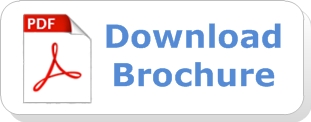Fundamentals of Agile
(course code FUNA1)
Overview
This overview course provides you with knowledge of agile principles, and approaches to setting up and running a project in an agile way.
Using AgilePM, Kanban, Lean Startup and Scrum as references, you will learn about the roles and techniques needed to set up an agile project, then run it through increments and iterations, to deliver meaningful business value as quickly as possible.
You will learn the conditions of success for agile methods, how to scale the agile approach for large teams, and how to adapt current business analysis methods to become more agile.
Topics also include the makeup of the agile team, such as the Business Visionary/ Product Owner, Business Analyst, Agile Coach and Solution Tester.
Course Objectives
By the end of this short course, participants will be able to:
- Describe the agile values and principles;
- Explain agile roles and responsibilities;
- Describe agile business analysis activities;
- Develop user stories and acceptance tests;
- Define non-functional requirements and business rules using an agile approach;
- Use user story mapping to identify key functionality for a release;
- Describe and apply release theme and user story prioritization techniques;
- Estimate user story size using story points and planning poker;
- Create release and iteration plans based on user stories;
- Describe techniques for negotiating changes to user stories during an iteration;
- Describe the conditions of success for implementing agile;
- Describe ways to adapt the agile requirements approach;
- Describe approaches for scaling agile for large teams;
- Conduct an agile retrospective.
Who Should Attend
- People with little or no experience of agile projects;
- People who are intending to start managing or working in agile projects soon;
- People who need to learn the basic agile skills quickly.
Prerequisites
There are no prerequisites for this short course.
Course Content
This short course covers:
- Agile Basics:
- Agile and lean values and principles;
- Contrasting agile and waterfall methods;
- Agile roles and responsibilities;
- The agile project manager;
- The agile business analyst;
- The agile team environment;
- Self-organizing teams.
- Defining Agile Requirements:
- An agile requirements process;
- Identifying user roles;
- Creating personas;
- Capturing requirements as User Stories;
- Defining non-functional requirements and business rules;
- Creating the Prioritised Requirements List;
- Requirements traceability in agile projects.
- Planning in an Agile Project:
- Defining the vision.
- Levels of planning in agile;
- Creating a product roadmap;
- Prioritizing for releases.
- Estimating user stories;
- Planning increments (releases);
- Planning iterations;
- Iteration Zero activities.
- Conducting Iterations:
- Activities during iterations;
- Writing acceptance tests for user stories;
- Defining “done" in agile projects;
- Business analysis activities;
- Negotiating changes during an iteration;
- Tracking status in an agile project;
- Releasing deployable solutions into the operational environment;
- Agile retrospectives.
- Adapting and Scaling Agile:
- Motivations for implementing agile methods;
- Conditions for success for implementing agile methods;
- Adapting agile methods;
- Scaling agile methods;
- Course Summary
Certification Exams
There are no exams with this course.
Course Fees
We offer a range of delivery styles and packages for this course. Please go to the Packages and Inclusions page to review the inclusions provided with each package.
Professional Development
Successful completion of this course may entitle you to credits in various professional development programmes:
- For AIPM CPD points, check here;
- For PMI PDUs, check here (see page 11).
Follow-on Courses
We recommend that delegates who complete this briefing should proceed with our Agile Project Management courses.





